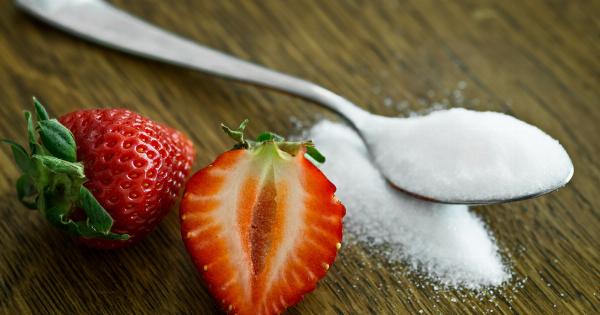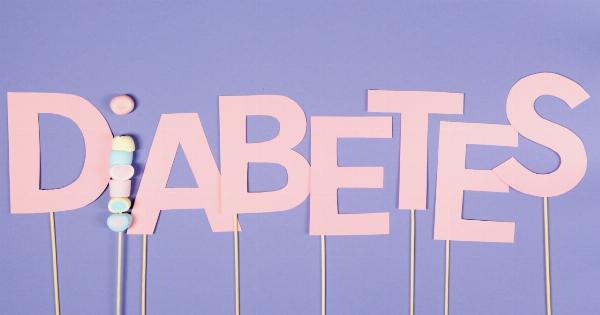Debating the Danger: Sugar vs. Fat.
The Sugar Debate
Over the past few decades, sugar has become a hot-topic in the health and wellness community. With its links to obesity, diabetes, and other chronic diseases, many experts argue that sugar is one of the most dangerous substances we consume.
However, there are also those who believe that sugar is just a scapegoat, and that fat is the true culprit. In this article, we will explore both sides of the argument and delve into the science behind the debate.
Sugar: The Sweet Poison?
The consumption of sugar has skyrocketed in recent years, mainly due to the increased availability of processed foods and sugary drinks. Sugar, especially the refined kind, is quickly absorbed by our bodies, causing a rapid spike in blood sugar levels.
This sudden surge triggers the release of insulin, the hormone responsible for regulating blood sugar. Over time, excessive sugar consumption can lead to insulin resistance, obesity, and a host of other metabolic disorders.
The Fat Paradox
While the sugar debate rages on, some experts argue that fat has been unfairly demonized. For decades, people have been advised to avoid fat at all costs, under the assumption that it contributes to obesity and heart disease.
However, recent studies have challenged this notion and suggested that not all fats are created equal. The ketogenic diet, for example, promotes the consumption of healthy fats and restricts carbohydrates, leading to weight loss and improved blood lipid profiles.
Sugar vs. Fat: The Health Implications
To understand the health implications of sugar and fat, we must first examine their effects on different aspects of our well-being.
1. Weight Gain
Sugar: Numerous studies have linked high sugar consumption to weight gain and obesity. Sugary foods and beverages are often high in calories but provide little to no nutritional value.
Furthermore, sugar can interfere with the body’s natural hunger and fullness cues, leading to overeating and weight gain.
Fat: The role of dietary fat in weight gain is controversial. While fat is calorically dense, not all fats are equal in terms of their impact on weight.
Healthy fats, such as those found in avocados and nuts, can provide satiety and help control appetite, while unhealthy fats, like trans fats, may contribute to weight gain.
2. Metabolic Health
Sugar: Excessive sugar intake can contribute to the development of metabolic syndrome, a cluster of conditions that increase the risk of heart disease, stroke, and type 2 diabetes.
High sugar diets can lead to insulin resistance, elevated triglyceride levels, and reduced HDL (good) cholesterol.
Fat: Not all fats are detrimental to metabolic health. In fact, certain types of fats, such as omega-3 fatty acids found in fatty fish, have been shown to have protective effects against heart disease and insulin resistance.
3. Heart Health
Sugar: Studies have suggested that diets high in added sugars may increase the risk of heart disease.
Excessive sugar consumption can raise blood pressure, contribute to the development of visceral fat (fat stored around organs), and lead to inflammation, all of which are risk factors for heart disease.
Fat: The link between dietary fat and heart disease is complex.
While certain types of fat, such as saturated and trans fats, have been shown to raise LDL (bad) cholesterol levels, others, like monounsaturated and polyunsaturated fats, have been associated with decreased risk of heart disease.
4. Brain Health
Sugar: High sugar diets may have negative effects on cognitive function and increase the risk of conditions like dementia and Alzheimer’s disease.
Excessive sugar consumption has been linked to inflammation and oxidative stress in the brain, impairing memory and learning abilities.
Fat: The brain relies on healthy fats for optimal function. Essential fatty acids, such as omega-3s, are vital for brain development, cognitive function, and emotional well-being. Low-fat diets may deprive the brain of these essential nutrients.
The Bottom Line
The debate between sugar and fat is an ongoing one, and both substances have their pros and cons. However, it is crucial to focus on overall dietary quality and balance, rather than vilifying a single nutrient.
Opting for whole, unprocessed foods, limiting added sugars, and consuming a variety of healthy fats can contribute to improved health and well-being.





























